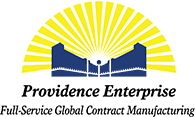The Many Hats of an Integrated Contract Manufacturer and How Each One Fortifies Your Medical Device Supply Chain
In its 2020 report, Risk, Resilience and Rebalancing in Global Value Chains, McKinsey Global Institute includes a graph plotting different types of ‘shocks’ and their potential to disrupt value chains around the world. It includes everything from trade disputes to man-made disasters to changes in regulations to financial crises.
On the graph, each shock is assigned a value according to how easy it is to anticipate and the amount of potential costs. At the very top of the cost axis, above ‘global military conflict’ is a plot point marked ‘pandemic’. Estimated to cost tens of trillions of dollars in damages, the only greater economic impact would result from disasters that have not yet occurred, such as a meteoroid strike or the eruption of a supervolcano.
Can your supply chain survive a supervolcano?
Resilience, or the ability to continue operating in spite of unusually tough circumstances, depends on whether your supply chain has been fortified by numerous critical factors. If it has not been inured against poor communication or financial risks, for example, it is on unsteady ground to begin with and will not endure major shake-ups.
The hidden value of integrated contract manufacturers for the medical device sector
The medical device outsourcing market is expected to double from the $52.9 billion it was worth in 2019, to over $100 billion by 2025. Much has been written about the bottom-line benefits of working with a contract manufacturer (CM). However, this article aims to highlight their critical role in building resiliency into your supply chain.
Here are the five hats your fully-integrated CM should wear.
1
The good listener
Your CM has to be, above all else, a good listener because a lapse in communication can have very serious repercussions. Instead of flowing quickly down the supply chain, your device could get stuck and maybe even sent back: back to the drawing board, back to the testing lab, back to the factory.
Listening is only the first step, of course. The next is to ensure your goals and requirements are communicated precisely across the supply chain so everyone – from designers to engineers to project managers – is in alignment.
Your CM will also actively listen to their teams and keep you updated. For utmost transparency, your CM should be as quick to deliver “bad” news as good. Caught early, issues such as design flaws, material shortages or other delays can be addressed before they snowball.
2
The traffic controller
Some manufacturers hold onto the myth that a CM with more global locations will automatically be more responsive to sudden change in demand. In reality, responsiveness and speed depend more on strategic choices than they do on merely having a wide network. Holding components and finished products in spread out warehouses just in case they are needed can become a pricey safety net which you may never even use.
A CM prepared for numerous likely scenarios knows what safety stocks to keep and where to place them in order to expedite production. With a clear plan to direct resources to the right location as needed, you can meet goals despite sudden changes in circumstances, legislation or demand.
3
The super saver
Big revenue doesn’t mean big profits, especially if kinks in your supply chain are leaking money. Your CM won’t let that happen. Best practices will be implemented at every stage of your products’ lifecycle and decisions throughout the chain that are financially effective. This means reducing errors (see “The listener” above) that could result in costly rework, or worse, recalls.
By purging your supply chain from the risk of expensive errors and ensuring it is optimized for efficiencies that fulfill your specific requirements, your CM plugs up costly money leaks and keeps your supply chain nimble.
4
The pro
This hat could just as easily be labelled “the know-it-all” because that is, in essence your integrated CM’s job. You simply cannot risk handing over responsibility to anyone that does not have a full consignment of dedicated end-to-end development and production experts.
Expertise is what ensures everything is done right from the very first step. Your CM’s teams will be able to tell you with absolute confidence when there is a better, faster, more economical option that does not sacrifice on quality. They will have the technical knowledge to recommend the best materials based on mechanical, biomedical and performance properties. They will recognize when systems may not work together and when automation will speed up or delay processes.
5
The track star
It is not enough to know it all. A valuable medical device CM will also have it all: the people, technology, processes, facilities, equipment, certifications… everything necessary to deliver in the highly-regulated medical sector.
Your track star will have evidence of their excellent track record with both customers and regulatory boards. It will prove it has met the strict safety and quality requirements as set by FDA QSR and ISO 13485.
Resiliency is about dealing effectively with disruptions and stressors. In many countries – the US and countries in the EU in particular – continuously enhance regulatory oversight for medical devices. Your track star CM will have a full portfolio of success stories that benefit its customers; from welcoming (because they know they are compliant with) FDA audits to adapting design and production to comply with new regulations.
Riding out disruptions of all shapes and sizes
As a black swan event (an unexpected event with severe repercussions), COVID-19 was especially shattering. However, even pre-pandemic, many supply chains were vulnerable to much smaller disruptions. In good times, but especially in tough times, what you need from an integrated CM is a partner you can trust and one that can help you thrive, even during a pandemic.
That’s one hat that never comes off.
Would you like a copy of this post to share?
Other Featured Resources
About Providence Enterprise
Providence Enterprise is a Hong Kong medical device contract manufacturer of Class I and II medical devices with manufacturing in China & Vietnam. We specialize in electro-mechanical assemblies and high-volume disposables. We are FDA registered and ISO 13485, ISO 14971, ISO 14001, ISO 27001 certified. Our capabilities include fabricating tooling for silicone rubber and injection molded plastics, clean room injection molding, electronics, clean room assembly, and sterilization.















































